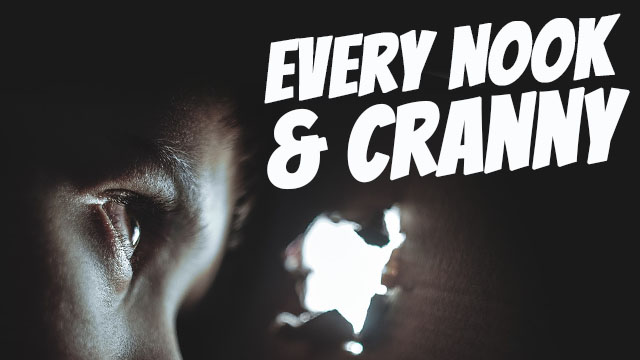Ep066: Expression – Step by step, Piece by piece, Bit by bit, etc.
In today’s episode, Ep066: Expression – Step by step, Piece by piece, Bit by bit, etc., you’ll learn how to use the common form or pattern in english of “Something by something”, e.g. “Step by step”, “Piece by piece”, “Bit by bit”, etc.
Ep066: Expression – Step by step, piece by piece, bit by bit, etc.
Hey everyone from Aussie English!
Today is another expression episode and I’m going to talk to you again about an expression that I heard myself say in the previous episode of Walking With Pete where I talked about breaking things down into their most manageable parts so that things become a lot easier to deal with, to process, to improve upon, and then hopefully, you know, break things down, solve one bit at a time, and then eventually realise that you have completely finished the task that you previously thought was incredibly difficult or even impossible, such as becoming fluent in English.
So, today I want to break down the ah… the phrase or the sort of form of phrase, “Brick by brick”. So, in the last episode of Walking With Pete I talk about building um… a brick wall “Brick by brick”. So, one brick at a time, and I used a few analogies in that episode but one of them was that learning a language is much the same as building a brick wall. You can’t build a brick wall all in one go. You can’t learn a language all in one go. You have to just pick up one or two bricks at a time, place them in the wall, and then slowly build that wall over time the same as with learning a language. It’s so much easier to learn a language if you focus on one piece of grammar, one area of vocabulary at a time, and work hard at getting good at that area, conquer that area, do well in that area, and then get to the next one and focus on that, and slowly build your brick wall that is the language that you’re trying to become fluent in, that you’re trying to conquer, and within no time at all, well… within a bit of time, it takes months or years but if you do it bit by bit it seems like no time eventually and you’ll look back and all of a sudden behind you you’ll have this metaphorical um… analogy of a brick wall that is the language that you can now speak um… fluently, that you can speak better than you could have a week ago, a month ago, a year ago. Anyway.
So, I wanted to kind of break down that “Brick by brick” piece of… of English, that expression, because we use this [pattern/form] quite a lot and it’s often a noun that we’ll pick and we’ll use such as “A brick” and we’ll say “Brick by brick”, “Step by step”, “Bit by bit”, “Piece by piece”, “Tree by tree”. So, it’s… it’s a pattern you’ll see quite a bit when we’re talking about doing something in stages. So, trying to complete a process with individual stages like learning a language bit by bit, or building a wall brick by brick. So, it will be something that’s happening or that is done in a series of steps or stages. So, in order to accomplish it you have to do it piece by piece, bit by bit.
So, it’s analogous to the expression “One *something* at a time”. So, you could say, “Brick by brick” or “one brick at a time”. You could say, “Step by step”, or “One step at a time”. You could say, “Bit by bit” or “Piece by piece” or “One bit at a time”, “One piece at a time”. So, it’s a pretty simple…. It’s a pretty simple form that you guys can use when you’re speaking and I guess I’ll just run you through some exercises, ‘cause there’s not really that much more to say about it really.
So, I’m going to say a series of sentences that end in the… in the form “One something at a time”. So, “One bit at a time”, “One step at a time”, “One piece at a time”, and I want you guys to listen to what I say and then repeat it, but instead of saying the “One bit at a time” I want you to turn that into “Bit by bit”, “Step by step”, “Piece by piece”. So, an example could be, and I’ll say this one just to start with and then you guys listen and repeat after me, “I finished the game one bit at a time”, and then you guys would say, “I finished the game bit by bit”. So, here we go. Listen and convert these sentences after me.
I finished the game one bit at a time.
I finished the game bit by bit.
He built the wall one brick at a time
He built the wall brick by brick.
She made the cake one step at a time.
She made the cake step by step.
He dismantled the machine one piece at a time.
He dismantled the machine piece by piece.
She learnt the song one line at a time.
She learnt the song line by line.
We flicked through the magazine one page at a time.
We flicked through the magazine page by page.
They felled the forest one tree at a time.
They felled the forest tree by tree.
The police searched the town one house at a time.
The police searched the town house by house.
They solved the puzzle one piece at a time.
They solved the puzzle piece by piece.
The new couple took their relationship one day at a time.
The new couple took their relationship day by day.
So, there’s a few verbs that I used in there that may be a little more complicated in some of those examples, and I might explain them now. I forget to do it before hand. Um… so, often when people flick through a book, or flick through a magazine, it just means that you’re rather hastily going through the book um… or the magazine, or anything like a newspaper, anything that you read effectively, that’s like full of pages. If you flick through it it gives the impression that you’re literally [the sound of flicking through a book] doing this through the book, or through the magazine. So, you’re like flicking from one page to the next page. Flick, flick, flick, flick, flick. So, we’ll often say that if you’re browsing through a magazine say in a hairdresser’s or while you’re waiting, you know, for a dental appointment or something like that where there’s a lot of magazines around that you can read. If you flick through them it means that you’re not necessarily reading every single thing on the page of every single page. You’re just rapidly going through he magazine looking for something interesting.
And also, I said the phrase, “They felled the forest one tree at a time.” This is a rather advanced verb that you probably won’t hear very often, but if you’re chopping down trees, or cutting down anything that’s like wood related, you’ll “Fell” it. So, it sounds the same as the past tense of “To fall”, “To fell”, but it’s actually the verb in this case for chopping down something. So, you… you fell a tree. You fell the trees in a forest. A forest can be felled. It means that they’ve all been cut down. So, “To fell something”, and in the past tense it becomes “Felled” or “To have felled”. So, that’s just another interesting verb that you guys probably won’t hear very often but I just thought I would tell you now what it means. Anyway, that’s probably enough for today’s episode guys. I hope it helps. Um… let me know what you think on Facebook. Send me a message to say hello anyway, ‘cause I love hearing from you guys, and stay tuned for future episodes. All the best guys!
Here's what you get when you sign up!
- Read while you listen using the Premium Podcast player.
- Understand every word in every episode.
- Download all PDF transcripts and MP3s for 600+ episodes.
- Get access to bonus member-only episodes.












Responses